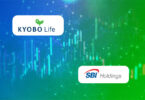This month Chamber of Digital Commerce released its second edition of Understanding Digital Tokens, a series of reports which intend to act as guidelines to blockchain-based digital assets. The trade organization is specifically for firms involved in blockchain and digital tokens.
The Chamber runs various working groups for different aspects of DLT, including a smart contracts alliance, an accounting consortium, a standards forum, and an intellectual property council.
Currently, three reports in the series are out: one on when digital assets are securities, one on market trends, and another relating to consumer protection.
Amy Davine Kim, chief policy officer of the Chamber of Digital Commerce, stated: “We view this as an important resource to provide policymakers, regulators, and practitioners with the tools to make informed decisions when engaging in the token economy.”
Securities or not securities?
Whether blockchain-based assets should be considered securities is an open question. As Kim put it: “We are in a moment when technological advancement is pushing the boundaries of decades-long established law.”
“These laws were made at a time when tokenized assets and instantaneous digital transfers of value were not contemplated. It is exciting to be a part of it, but it also entails risks,” Kim continued.
The report aims to establish guidelines for deciding the status of digital tokens. It defines a tokenized security as a blockchain-based asset meeting the definition of a security as seen by the U.S Securities and Exchange Commission (SEC), which has been at the forefront of this debate. Meanwhile, utility tokens are typically sold to be used to buy goods on services on a blockchain platform.
For a token not to be considered a security, the Chamber suggests steps to be taken before the fundraising begins. A utility token needs to represent an underlying system or application, so ideas and concepts need to be mapped out. But to avoid being considered a security, the system or application should be fully developed before distributing the tokens.
The Chamber further recommends a regulatory review to discover whether the token meets the ‘Howey Test’ for securities and if the firm needs to register it elsewhere. If the company needs to start selling tokens before the underlying system goes live, it may require an exception from the SEC.
One of the key points from the report is that the firm should market a product, not an investment. This is what the SEC claims in their lawsuit against messaging app Kik when the company raised $100m in an ICO.
Last week INX registered its token sale as a sale of securities – breaking the mold of most other digital asset sales.
Trends in token fundraising
The Chamber looked at projects which raised $25,000 or more through blockchain-based tokens. Unsurprisingly it concluded that 2018 was a slow year for ICOs, partly the result of the slump in cryptocurrencies. Did that have a further knock-on effect to general blockchain initiatives?
No – in fact, “virtually every part of the blockchain industry saw development” with the finance, media, and IT sectors making the most progress. The downward trend in tokens for fundraising only meant that conventional ways of raising money, such as venture funding, were on the up, the report claims.
Another conclusion is that while the information sector has raised the most capital from tokens from 2013 to date, the second-placed finance sector has had more individual fundraising projects. This means that each project in finance made far less on average than those in computing.
The primary four industries are the above information, media, and finance sectors, along with professional services. Lagging behind are natural resources, health and social care, trade and transportation, then real estate.







